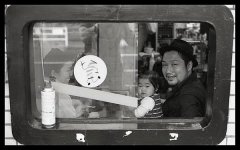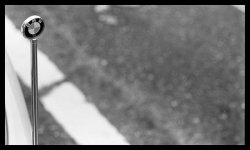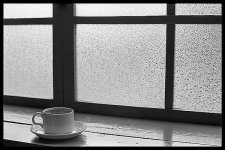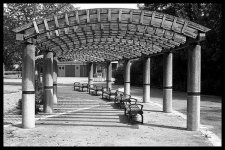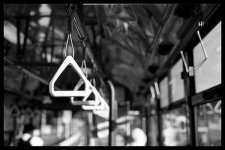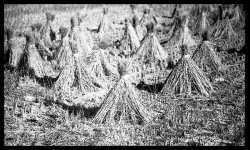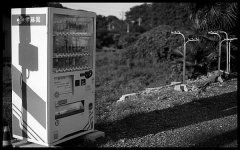philosomatographer
Well-known
Regarding 50/1.4 vs 50/3.5 - common logic dictates that a "slower" lens design will almost always be superior to a "faster" lens design, but it does not always hold in practice. It has much more to do with the individual design of the lens, and (even more importantly) the time and cost incurred in its manufacture - i.e. precision of lens grinding and assembly.
In the end, though, we have to admit that almost all 50mm lenses, whether slow by design, or stopped to down (to f/3.5 - f/4) are pretty much perfect, and you'd need very good technique to show a difference - forget hand-holding, for example.
I have, over the years, used many 50mm lenses of different designs and systems. You'd honestly be hard-pressed to tell a difference between any of them at f/3.5! The single stand-out in my experience is the M-mount Voigtländer Heliar 50mm f/3.5 - it has an above-average combination of resolution yet "gentle" rendering of out-of-focus areas. All other 50s - from a Noctilux, to a Canon EF 50mm f/1.2L, to the various Nikkors, to the various Zuikos, look pretty much the same at f/4. The Zuiko 50/1.4 >1.1m is diffraction-limited by f/5.6 (optically perfect) but of course it's not know for smooth out-of-focus areas.
If you want a 50 to get excited about, consider the Zuiko 50mm f/2.0 Macro (it' a bit bog for a Zuiko though). Like it's 90mm sibling, there is something extraordinary going on in the optics of that lens - it stands head and shoulders above every other SLR 50mm ever made in many people's opinion. This is not about resolution (although it does best even the Zeiss Makro-Planar 50/2.0 in that regard, wide open at infinity) but about the way it projects the range of tones of the subject. Olympus used some special combinations of proprietary glass in the two f/2.0 Macros that (can) imbue the image with a special tonal range that I have not seen any other lens regularly produce. Not even the 250/2.0, even though it's on paper the all-out best-performing Zuiko. Probably the two finest optical designs in history, in my humble opinion
Bottom line is - use any 50mm lens that you enjoy, and forget about the technicalities. Look for the good light and the good colour (if colour is your thing...). Any Zuiko 50mm will do a splendid job of projecting your composition onto film flawlessly.
In the end, though, we have to admit that almost all 50mm lenses, whether slow by design, or stopped to down (to f/3.5 - f/4) are pretty much perfect, and you'd need very good technique to show a difference - forget hand-holding, for example.
I have, over the years, used many 50mm lenses of different designs and systems. You'd honestly be hard-pressed to tell a difference between any of them at f/3.5! The single stand-out in my experience is the M-mount Voigtländer Heliar 50mm f/3.5 - it has an above-average combination of resolution yet "gentle" rendering of out-of-focus areas. All other 50s - from a Noctilux, to a Canon EF 50mm f/1.2L, to the various Nikkors, to the various Zuikos, look pretty much the same at f/4. The Zuiko 50/1.4 >1.1m is diffraction-limited by f/5.6 (optically perfect) but of course it's not know for smooth out-of-focus areas.
If you want a 50 to get excited about, consider the Zuiko 50mm f/2.0 Macro (it' a bit bog for a Zuiko though). Like it's 90mm sibling, there is something extraordinary going on in the optics of that lens - it stands head and shoulders above every other SLR 50mm ever made in many people's opinion. This is not about resolution (although it does best even the Zeiss Makro-Planar 50/2.0 in that regard, wide open at infinity) but about the way it projects the range of tones of the subject. Olympus used some special combinations of proprietary glass in the two f/2.0 Macros that (can) imbue the image with a special tonal range that I have not seen any other lens regularly produce. Not even the 250/2.0, even though it's on paper the all-out best-performing Zuiko. Probably the two finest optical designs in history, in my humble opinion
Bottom line is - use any 50mm lens that you enjoy, and forget about the technicalities. Look for the good light and the good colour (if colour is your thing...). Any Zuiko 50mm will do a splendid job of projecting your composition onto film flawlessly.
Last edited:

